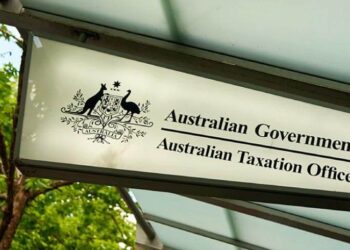SuperConcepts executive manager SMSF of technical and private wealth Graeme Colley said that while it’s difficult to know what will be in the budget, superannuation bodies and groups have put forward a wide raft of proposals in their pre-budget submissions this year.
The government has already made two key announcements in the lead-up to the budget, including an extension to the temporary reduction in superannuation minimum drawdown rates and plans to address the issues with non-arm’s length expenditure provisions.
Most of the pre-budget submissions, Mr Colley noted in an online article, have focused on introducing greater incentives for those on lower and middle incomes and tapering concessions for high-income earners and anyone with relatively large super balances.
“Simplification and modernisation of the sector are the overarching themes of other submissions,” he said.
While the government has already ruled out adding superannuation guarantee to the paid parental leave scheme, at least for this year’s budget, there have been a range of other proposals focused on extending SG to certain groups.
These proposals include extending superannuation guarantee to workers under 18 years old and who work at least 30 hours each week and self-employed people and certain categories of contractors, said Mr Colley.
A lot of submissions have also requested that the government stick to the timetable for the legislated increase of the SG rate to 12 per cent.
Another proposal, which a number of associations have supported, including Chartered Accountants Australia and New Zealand, is replacing the annual contribution caps with a lifetime contribution cap.
CA ANZ group executive, advocacy and international, Simon Grant said that introducing a lifetime contribution cap and allowing joint spousal super accounts would go a long way to making things fairer for women and allowing them to make more contributions later in life and “catch their super balances up to their male peers”.
“These measures will have the added bonus of reducing compliance and administration costs for consumers and super funds,” Mr Grant added.
Certain submissions have also suggested limiting the amount that can be kept in superannuation to $5 million, with a requirement for any excess above this to be withdrawn.
Mr Colley noted that there have also been calls to simplify the transfer balance cap and total superannuation balance.
The transfer balance cap last year moved from a single cap to caps being calculated on an individual basis ranging from $1.6 million to $1.7 million.
“[Some] submissions are of the opinion that this merely causes confusion and increases costs and propose that use of a single cap will reduce costs, uncertainty and provide simplicity to all involved,” he stated.
“In relation to the total superannuation balance, there are a number of thresholds which are used to determine various types of contributions, tax offsets and the lodgment of information to the ATO. The SMSF Association considers that these threshold points are unnecessary and add to the complexity of the superannuation system which may be hard for individuals to understand.
“Their opinion is that the number of threshold points could be significantly rationalised to assist with simplification.”
The SMSF Association, in its submission, also called for compliance relief for minor breaches with non-geared unit trusts and companies.
Mr Colley explained that SMSFs that invest in ungeared unit trusts and companies have the value of the units or company shares excluded from the value of the fund’s in-house assets.
“If the unit trust or company makes a minor breach of the rules the value of the fund’s investment will be included in its in-house asset,” he said.
“Because of the severe operation of this rule, it may require the fund to withdraw or restructure the investment. It is submitted that the legislation be amended to provide some flexibility to accommodate minor breaches of the legislation.”
Mr Colley said it’s now “just a matter of waiting until [tonight] to see whether any of the suggestions that have been put forward in the submissions will be included in the 2022-23 federal budget and make it into law”.



Please remove annual contributions caps now that TSB exists